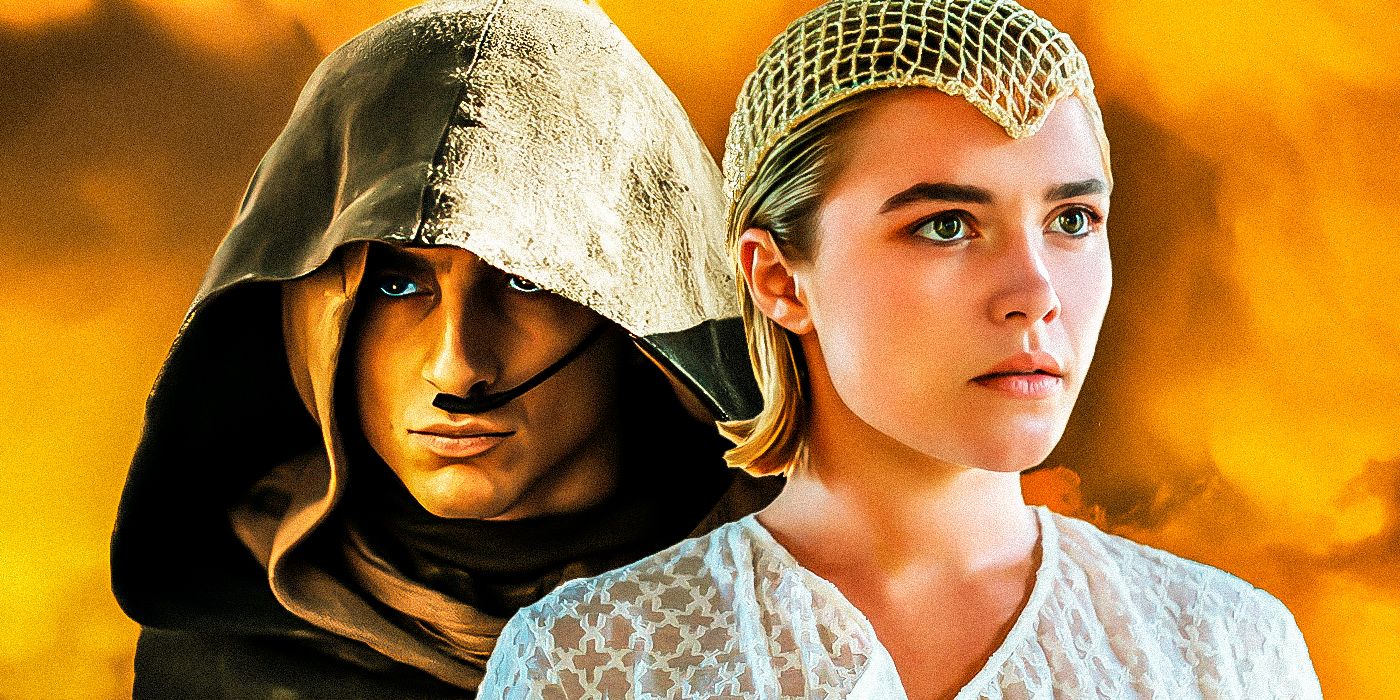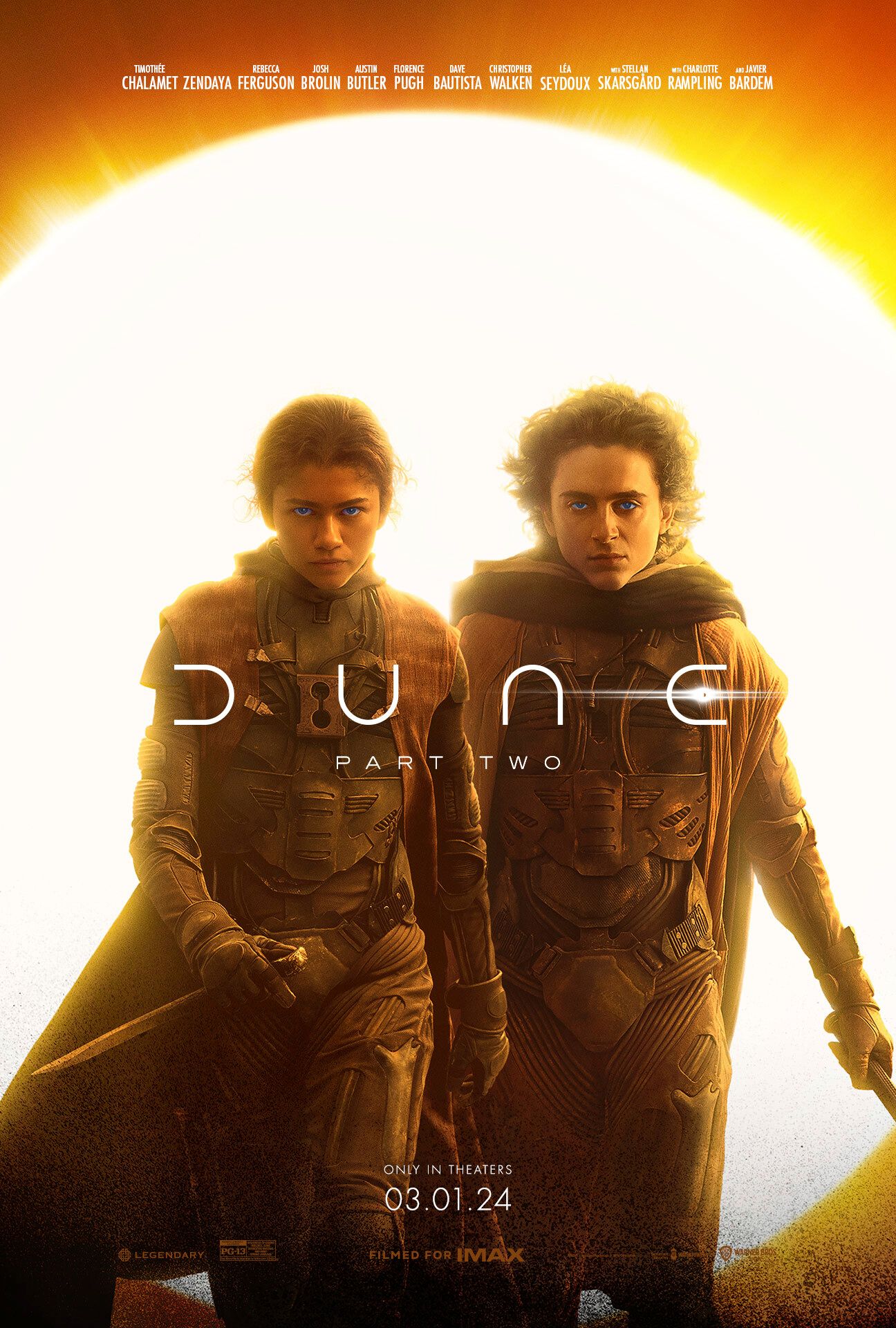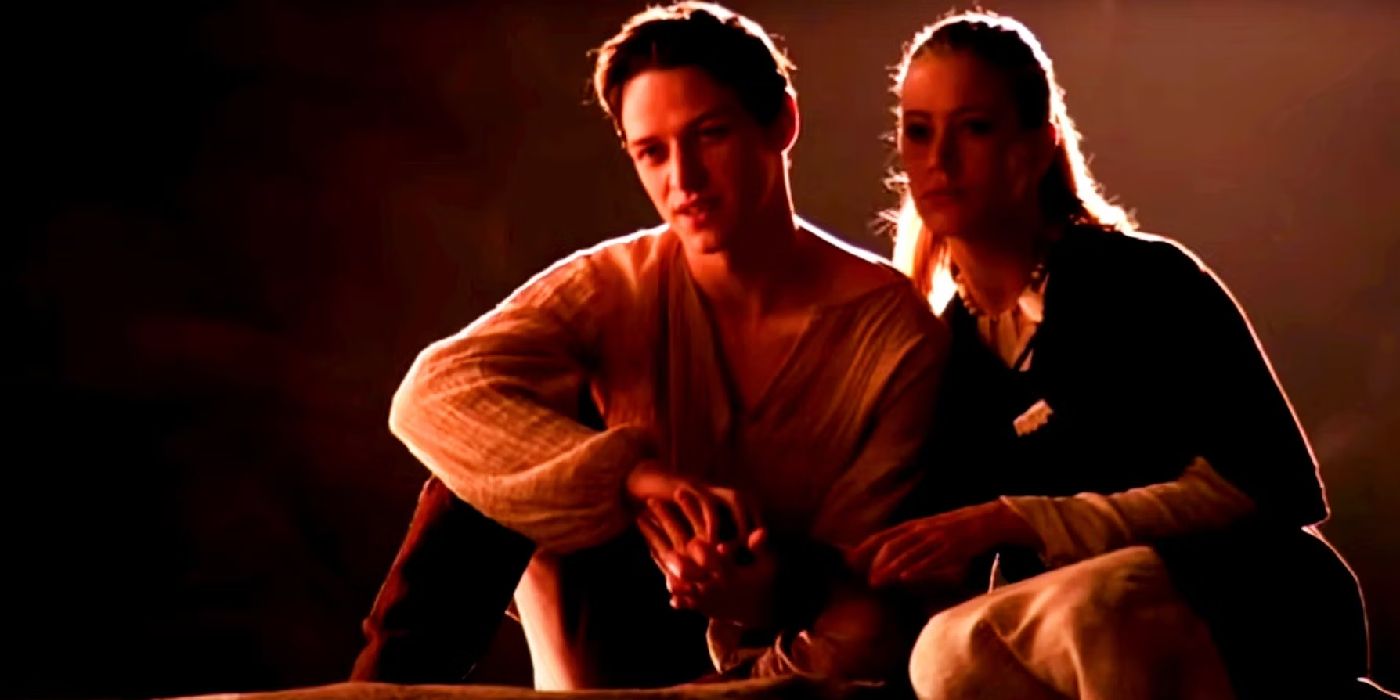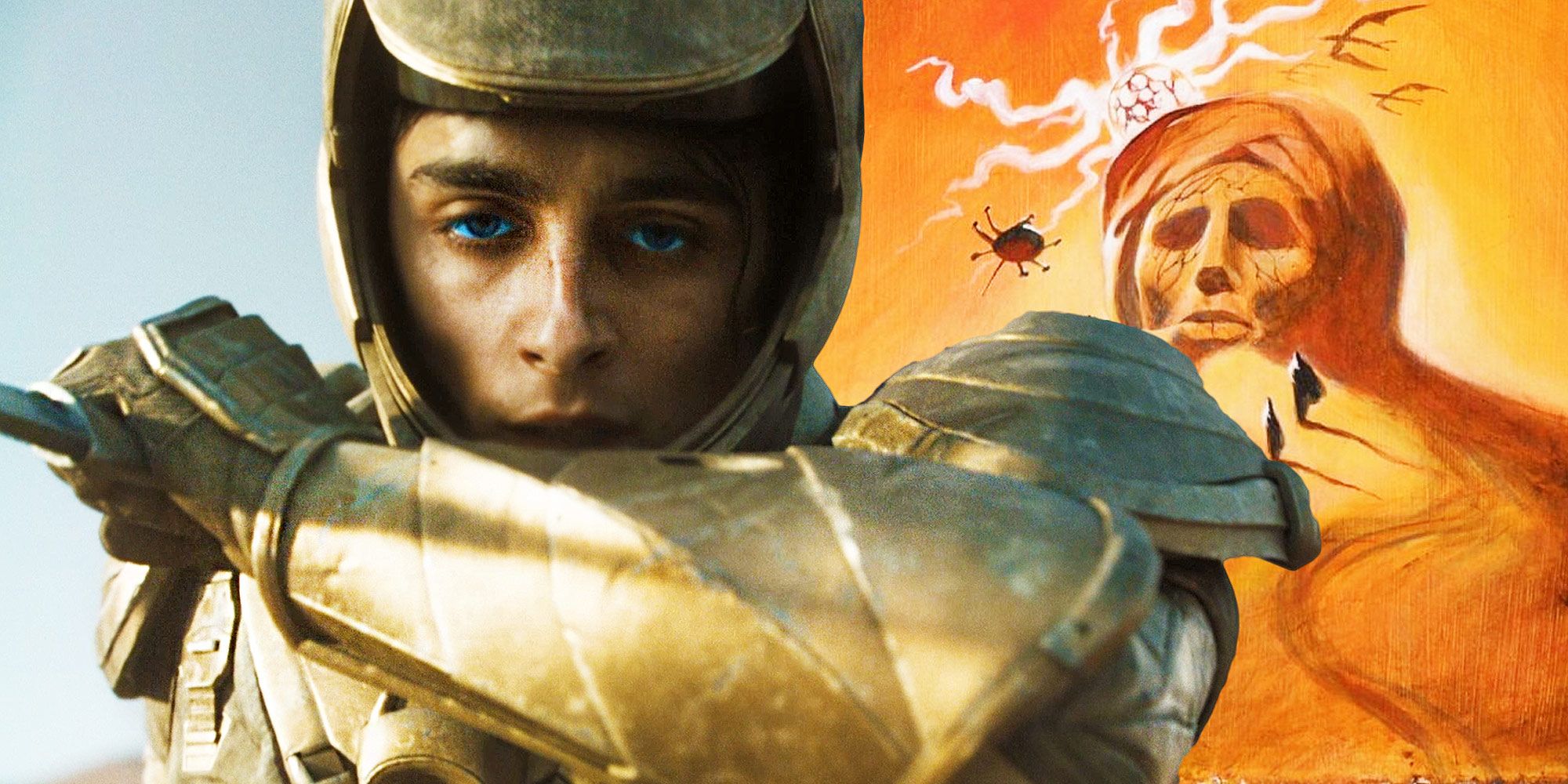Denis Villeneuve’s Dune: Part Two won deserved popular and critical acclaim, but – for all the sequel’s success – a subtle change from the book’s story proved that Villeneuve’s version of the story must come to an end after the next installment. In many ways, Dune: Part One and Dune: Part Two have been faithful retellings of Frank Herbert’s magnum opus. The novel’s message of the dangers of blind faith was masterfully delivered, alongside impressive visual spectacle. And yet, while many features remained the same in the two movies, some story details were necessarily altered.
One of the biggest differences between Dune the novel and Dune the two-part cinematic experience concerns characterization. While many of the same figures feature in both versions of the story, the ways they are presented creates a radically different impression. The best example of this is Paul Atreides’ sister, Alia. While she plays an active role in the novel – killing Baron Harkonnen in the climactic fight – she is an unborn presence in the movie, save for a brief cameo in a dream sequence. Although the movie’s treatment of Alia makes sense, it also inadvertently proves why Dune: Part Three will inevitably end Villeneueve’s franchise.
Cutting Alia Out Of Dune: Part Two Creates A Precedent For The Rest Of The Franchise
It Suggests Other Characters Like Her Will Be Treated In The Same Way
Before Dune: Part Two‘s release, Alia Atreides was understandably considered the sequel’s most problematic character. According to the book, Alia is gifted with all the abilities of a fully-fledged Bene Gesserit as soon as she is born – a direct result of Lady Jessica drinking the Water of Life while pregnant. This means that she is essentially an adult trapped inside a child’s body – a difficult thing to portray on film, as demonstrated by the failure to fully realize the character in David Lynch’s flawed 1984 Dune adaptation.
Given the character’s complex nature, it is unsurprising that Villeneuve chose to avoid the problems she poses entirely by condensing the story’s timeframe and keeping Alia in utero. As a result, she plays an extremely limited role in Dune: Part Two‘s story – communicating with Jessica and Paul behind the scenes, but not doing anything as dramatic as stabbing the baron. This decision makes the movie’s story much more easily digestible, exorcising one of its more complex plot points. However, it is also a tacit acknowledgment that Alia, and characters like her, are incompatible with the kind of story Villeneuve wants to tell.
Leto And Ghanima Atreides Are Even More Problematic Than Alia
Villeneuve Has Already Suggested He’ll Ignore Their Story
Considering Alia’s minimal role in Dune, the consequences of her absence for Part Two are not too dramatic. However, other characters in later chapters in the Dune story are not so easily ignored. Specifically, Paul and Chani’s children, Leto and Ghanima, present future Villeneuve movies with a problem that – if Alia’s treatment in Dune: Part Two is anything to go by – will prove insurmountable.
Like Alia, Leto and Ghanima are born with supernatural maturity and Bene Gesserit powers – behaving just like adults when they are only children. In Frank Herbert’s third novel, Children of Dune, this sees the pair behave in ways that would be unthinkable for a normal child – presenting exactly the same set of problems as Alia did for Dune: Part Two. In Dune, Alia’s somewhat peripheral role meant she could be removed from the story. However, this is impossible for Leto and Ghanima.
In his treatment of Alia, Villeneuve has already proven that he doesn’t think these child characters are conducive to good storytelling…
The two children are the pivotal players in Children of Dune‘s story – going directly up against Alia as she succumbs to the influence of her dead grandfather, Vladimir Harkonnen. As a result, any Children of Dune adaptation would have to feature them prominently. In his treatment of Alia, Villeneuve has already proven that he doesn’t think these child characters are conducive to good storytelling, suggesting that – whatever the merits of its narrative – Children of Dune does not make sense for Villeneuve to adapt. As a result, it seems inevitable that the third film (presumably adapted from Dune Messiah) is where the director’s version will end.
Dune Messiah Is Still A Great Place To End The Story
It Completes Paul’s Journey
Such is the power of Frank Herbert’s fictional universe that the Dune series has expanded to include over 40 books – most of which have been written by Herbert’s son, Brian, and collaborator Kevin J. Anderson. Even considering the original six novels written by Herbert himself, a comprehensive adaptation of the complete Dune story is impractical. With this context in mind, an adaptation of Dune Messiah is perhaps the most natural place to end Villeneuve’s movie trilogy.
Dune Messiah
represents the climax of Paul Atreides’ story…
Even though the story continues with Children of Dune, Dune Messiah represents the climax of Paul Atreides’ story. Having deposed the emperor and taken his holy war to the stars, Messiah shows Paul struggling with threats to his reign and personal hardship – balancing a plot to remove him from power and the fragility of his family’s rule with the knowledge that becoming a father will kill Chani. It ends with a blind Paul, having tried his best to plot the optimum path forward for humanity, wandering into the desert never to be seen again.

Related
10 Most Exciting Things To Expect From Dune 3
Dune 3 is confirmed to be in development. Based on information from the novels, here are the main plot details and cast changes to be excited about.
The poetry of this moment and its rich symbolism is the ideal way for Villeneuve to end his contemplative take on the story. Both previous movies have centered on Paul’s transformation as a protagonist, so it makes sense for the final installment to bring his story to a close. Any future installments would perhaps inevitably feel unnecessary and more like a reboot than a continuation. Even though characters like Leto and Ghanima are at odds with the way Villeneuve wants to tell his story, it may actually be for the best that his Dune: Part Two sequel (if it ever happens) is the movie series’ final installment.

- Release Date
- March 1, 2024
- Runtime
- 166 Minutes


